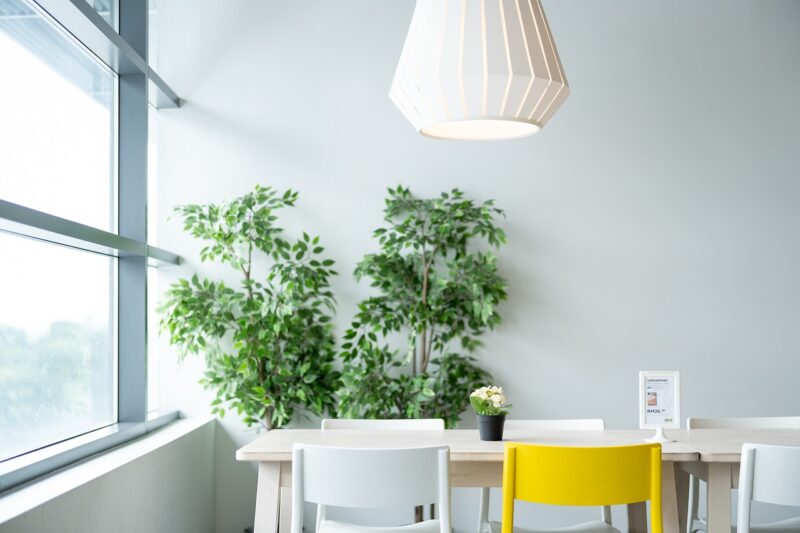
In today’s fast-paced world, filled with distractions and endless choices, the pursuit of happiness often feels elusive. Many people spend their lives chasing after more—more possessions, more experiences, and more commitments. However, a growing number of individuals are discovering that the path to true happiness lies not in accumulation but in simplicity. Minimalism, a lifestyle focused on reducing clutter and prioritizing what truly matters, is becoming a beacon of hope for those seeking fulfillment in a chaotic world.
1. Understanding Minimalism
At its core, minimalism is about intentional living. It’s not just about living with fewer items; it’s about making conscious choices that align with your values and passions. Minimalists seek to strip away the excess—be it physical possessions, emotional baggage, or social obligations—to focus on what adds value to their lives. This mindset shift can lead to clarity, peace, and ultimate satisfaction.
When we declutter our lives, we create space—not only in our homes but also in our minds. This allows us to pursue meaningful experiences and relationships, ultimately leading us to a happier existence.
2. The Psychological Benefits of Minimalism
Studies have shown that clutter can significantly impact mental health. The more items we own, the more overwhelming our environment can become. Visual clutter can lead to increased stress, anxiety, and even depression.
Minimalism helps mitigate these negative effects by promoting a calming environment. Here are some psychological benefits associated with adopting a minimalist lifestyle:
- Reduced Stress: A clutter-free space promotes relaxation and reduces mental overload, allowing individuals to feel more at peace𑁋making it easier to process emotions and thoughts.
- Increased Focus: With fewer distractions, it becomes easier to concentrate on tasks and goals. A minimalist environment fosters productivity and creativity, enabling deeper engagement with meaningful activities.
- Enhanced Mindfulness: Minimalism encourages individuals to be present in the moment, appreciating life’s simple joys rather than getting lost in a cycle of consumerism and distraction.
3. Minimalism and Relationships
Prioritizing meaningful connections over superficial interactions is a cornerstone of minimalism. By decluttering your social life, you make room for quality relationships that provide genuine support and joy. Here’s how minimalism can positively affect your relationships:
- Quality over Quantity: Minimalists often choose to cultivate a few deep relationships rather than spreading themselves thin across numerous acquaintances. These deeper bonds can lead to greater emotional support and satisfaction.
- Better Communication: By simplifying your life, you can invest more time in fostering strong communication skills, which are essential for thriving relationships. Less clutter allows for clearer conversations and understanding.
- Shared Values: Embracing minimalism often attracts like-minded individuals. Building a community around similar beliefs enhances feelings of belonging and fulfillment.
4. Minimalism and Financial Freedom
One significant aspect of minimalism is its potential for financial savings. By consciously choosing to purchase less, individuals can significantly reduce their expenses and redirect their finances toward experiences that bring true joy.
Consider the following financial benefits of minimalism:
- Budgeting Freedom: A minimalist approach helps clarify your financial priorities, making it easier to stick to a budget focused on essentials and meaningful purchases rather than impulsive spending.
- Less Consumer Debt: By choosing not to participate in a consumerist mentality, minimalists often find themselves removing unnecessary debt from their lives, leading to greater financial stability.
- Savings Opportunities: The money saved by minimizing purchases can be funneled into savings, investments, or travel experiences, leading to a more satisfying life overall.
5. Practices to Adopt for Minimalism
Transitioning to a minimalist lifestyle doesn’t have to happen overnight. Here are some practical steps anyone can take to start embracing minimalism today:
- Declutter Your Space: Begin by going room by room in your home, identifying items you no longer need. Ask yourself if each item brings you joy or serves a purpose. If not, consider donating or selling it.
- Assess Your Commitments: Review your calendar and evaluate your social and professional obligations. Learn to say no to activities that drain your energy or don’t align with your values.
- Practice Mindful Consumption: Before buying something new, take a moment to evaluate whether it’s essential. Aim to keep your purchases intentional and minimize impulse buying.
- Limit Digital Clutter: Apply minimalism to your digital life by organizing your files, limiting your social media usage, and unsubscribing from unnecessary emails or notifications.
6. Finding Fulfillment Through Experiences
Minimalism often shifts focus from acquiring material possessions to seeking fulfilling experiences, which can lead to greater happiness. Research suggests that experiences, whether they’re trips, classes, or quality time with loved ones, promote lasting happiness more than material goods. Consider:
- Travel Adventures: Investing in experiences like travel creates memories that last a lifetime, contributing to a sense of fulfillment and joy.
- Learning New Skills: Engaging in activities that boost personal growth or hobbies can lead to extraordinary happiness, shifting focus from consumption to creative expression.
- Quality Time with Loved Ones: Prioritize moments spent with family and friends over the pursuit of material possessions. The joy of connection fosters long-term happiness.
Conclusion: The Joy of Simplicity
Embracing minimalism could indeed be the key to finding happiness in a world that encourages excess. By focusing on what truly matters, we can create an intentional life filled with peace, clarity, and joy. Minimalism invites us to let go of distractions, refocus our priorities, and deepen our connections with ourselves and others. As we embrace simplicity, we unlock the door to a happier, more fulfilling life. Consider taking the leap into minimalism and witness how it can transform not only your environment but also your mindset and overall happiness.








